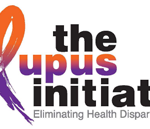The Centers for Disease Control and Prevention (CDC) has awarded the American College of Rheumatology’s (ACR) The Lupus Initiative (TLI) with a five-year grant to support the development of a national, grassroots program targeting primary care providers, persons with undiagnosed Lupus and rheumatology health care providers. The program will have three components:
- Immediate dissemination of educational and training materials currently available on Lupus to state and local organizations throughout the country,
- Development of a general awareness campaign to help the public identify signs and symptoms of Lupus and seek medical care, and
- Development of community-tailored activities that will be piloted in select communities during the first year of the initiative.
“Not only is Lupus often misdiagnosed, but patients commonly see at least three providers before diagnosis, many of whom are primary and emergency care providers who haven’t received significant training in diagnosing Lupus,” said Sheryl McCalla, TLI Project Director and ACR Senior Director, Collaborative Initiatives. “These providers may have received an average of 90 minutes of training on Lupus in the first and second years of medical school combined. This often contributes to delays in timely and accurate diagnosis, both of which are critical to helping patients manage and live with this condition. We are hoping to change that by educating both the public and providers on what to look for and the best steps to take when they suspect Lupus.”
Lupus is an autoimmune disease in which the immune system produces antibodies to cells within a person’s own body, leading to widespread inflammation and tissue damage. While the disorder can occur within any gender or ethnicity, women are affected eight times more often than men, and people of color are affected in higher numbers than whites, especially African Americans, Hispanics/Latinos and American Indian/Alaska Native populations. Additionally, women are often affected between age 15–40 during their prime years for education, career advancement and childbearing. And people of color with Lupus are more likely to suffer from comorbidities such as depression, cardiovascular disease and diabetes in additional to high prevalence and mortality rates.
The first phase of the program is scheduled to start in November and will focus on the national dissemination of TLI’s existing evidence-based education materials and programming. Foundational work for the next phases, community activities to pilot and an awareness campaign, are slated to begin in early 2016. The ACR plans to collaborate with the Lupus Foundation of America—who was also awarded grant funding—on the development of the awareness campaign.

